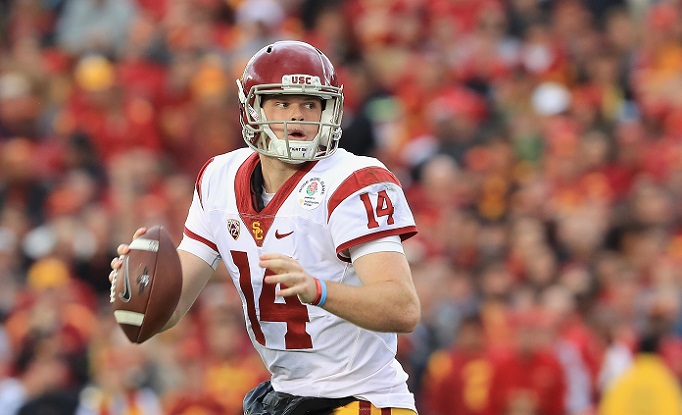Exactly who powered the Dow to 22,000?
I really don’t care much for marking 22,000 as some big milestone for the Dow, but I love this analysis of exactly who is powering it. Here’s a hint: It’s not a bunch of big-spending coal miners or Rust Belt workers spending all the money they are earning from newfound jobs.
The international nature of most companies in the Dow means they are always going to owe at least a bit of prosperity to overseas markets. But right now the majority of business for companies like Apple, Boeing and McDonald’s is coming from foreign markets.
And since immigration is also in the news today, I can’t help but notice how many Dow companies in the tech sector, like Apple, Microsoft, IBM, Cisco, Intel, etc., are powered by innovations that come from an immigrant-heavy workforce.
Raters still gonna rate, rate, rate
It will never make any sense why the rating agency model survived the aftermath of the financial crisis. It makes no sense whatsoever; and you don’t need to watch The Big Short to know it.
Here is a brief synopsis of what hasn’t been done to fix the problem associated with ratings agencies and the issuer-pays model:
“Seven years after the Dodd-Frank Act sought to reregulate Wall Street, the regulators haven’t pushed ahead with many of the reforms envisaged in the legislation, which aimed to boost accountability and lighten the financial system’s reliance on rating companies. The U.S. Department of Labor, for example, continues to promote the use of credit ratings in rules that apply to pension funds, while the SEC has yet to propose legal liability rules for rating companies. The SEC has also failed to endorse an alternative business model such as the Dodd-Frank proposal for rating companies to receive rating assignments at random in order to curb issuer influence on business decisions.”
The last item in that paragraph is the easiest solution of all: randomize ratings assignments. Of all the massive changes that have happened in response to the crisis – bringing derivatives onto exchanges, establishing the FSOC and the CFPB, implementing the Volcker rule – how is it that randomizing ratings assignments has proven to be a bridge too far?
The Financial Stability Institute boosted its voice on policy implementation
The Financial Stability Institute, which is housed at the Bank for International Settlements in Basel, Switzerland, unveiled a new publication aimed at contributing to the ongoing global conversation about the implementation of various financial sector policies.
The first two papers are about proportionality and cyber risk.
Fun with headlines
What is Goldman Sachs boss Lloyd Blankfien supposed to say here?
“Nope, I have no idea how to fix our trading problems. We are totally screwed.”
College football is just around the corner
The high school coach in me loved every word of this awesome feature on USC quarterback Sam Darnold. To all the parents of young athletes out there, read it and share it with your kids, their coaches and all the parents of the other kids on their team. Do not specialize. Just don’t do it. If you don’t trust me, trust the Darnolds.
WYWW Appetizers
- Notre Dame coaching legend Ara Parseghian passed away.
- Oops, Wells Fargo did it again.
- Libor is dead. Long live Libor!
- Damn I am old. The movie The Lost Boys is 30 years old.
